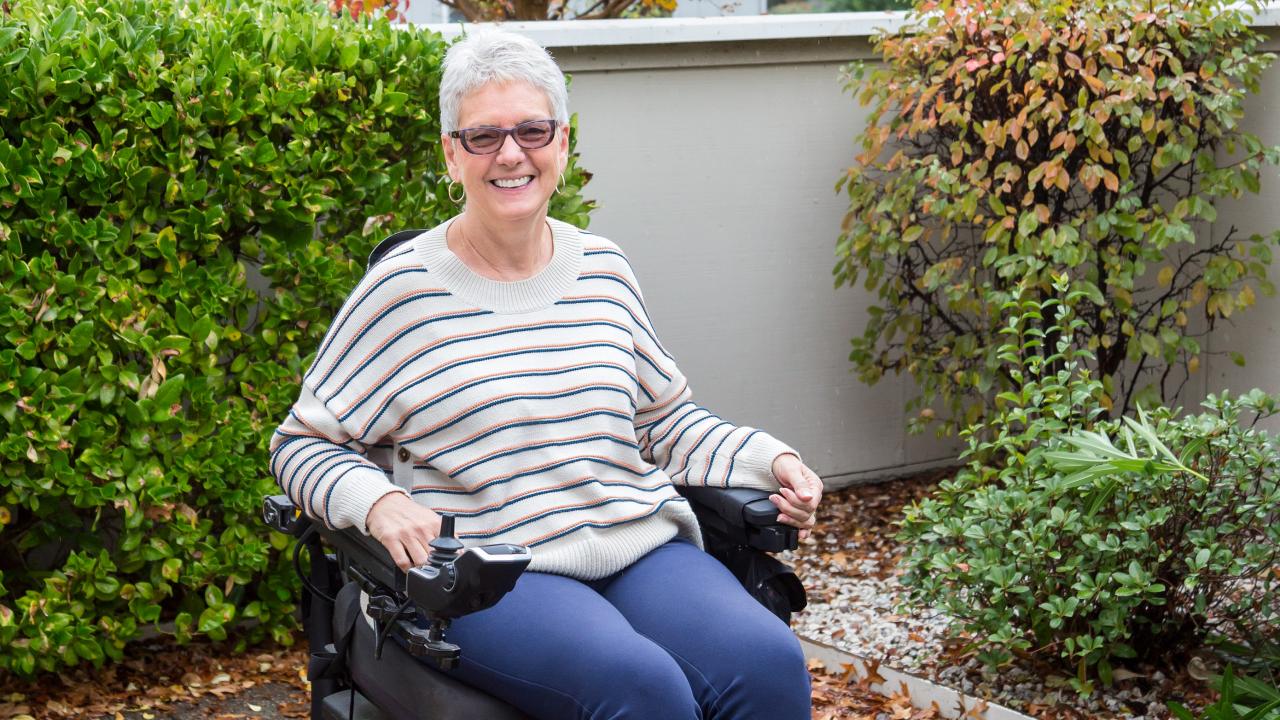 Photo: Getty Images
Photo: Getty Images
Multiple sclerosis is an autoimmune disorder that affects the myelin sheath in the central nervous system. A patient's immune system damages the myelin sheath, which covers the neuron's axon; this damage affects how signals are transmitted in the brain and spinal cord. The inflammation with multiple sclerosis targets oligodendrocytes, the glial cell that makes up the myelin sheath in the central nervous system. Multiple sclerosis does not affect the peripheral nervous system, as the myelin on the nerves outside of the brain and spinal cord are made from a different type of glial cell: Schwann cells. The onset of symptoms occurs most frequently between ages 20 and 40, with women having the disorder almost two times more than men, according to the National Institute of Neurological Disorders and Stroke.
No cure exists for multiple sclerosis, though several treatment options exist. Multiple sclerosis patients may take disease-modifying medications, which lower how often they have relapses of the disease and how severe these relapses are. The U.S. Food and Drug Administration has approved eight disease-modifying medications for multiple sclerosis, which include Tysabri (natalizumab), Rebif and Avonex (interferon beta-1a), Betaseron and Extavia (interferon beta-1b), Novantrone (mitoxantrone), Copaxone (glatiramer acetate) and Gilenya (fingolimod). These disease-modifying medications have different methods of delivery. Anonex is an injection done into the muscle, while Extavia, Copaxone, Betaseron and Rebif are injections done under the skin. Patients taking Novantrone and Tysabri receive an IV: Novantrone is administered four times a year, while Tysabri is administered every four weeks, according to the National MS Society's booklet on disease-modifying medication. The last FDA approved disease-modifying medication for multiple sclerosis, Gilenya, is taken orally.
Multiple sclerosis patients may take other medications, depending on their symptoms. For example, if a multiple sclerosis patient suffers from depression, her doctor may prescribe an antidepressant, such as the selective serotonin reuptake inhibitor sertraline or the tricyclic antidepressant amitryptyline. Medication may also be combined with psychotherapy. Muscle relaxants such as tizanidine and baclofen may help with muscle spasms, amantadine may reduce fatigue, and medications such as tamsulosin, oxybutynin or bethanechol may help patients with urinary incontinence. Amitryptyline may also treat pain, other pain medication options for multiple sclerosis patients include gabapentin and carbamazepine, which are both anticonvulsants.
Non-pharmacological treatments for multiple sclerosis also exist. For example, patients with balance or movement problems may benefit from physical therapy. Some multiple sclerosis patients may need to use assistive devices, such as walkers or a wheelchair. MedlinePlus, a service of the U.S. National Library of Medicine and National Institutes of Health, noted that good nutrition and planned exercise programs may benefit multiple sclerosis patients. The National Institute of Neurological Disorders and Stroke pointed out that different diets exist that may help reduce multiple sclerosis symptoms; patients interested in using one of these diets, such as a gluten-free diet, should discuss it with their doctor and a nutritionist.
References
National MS Society: Treatments
http://www.nationalmssociety.org/about-multiple-sclerosis/what-we-know-about-ms/treatments/index.aspx
Merck Manual Home Edition: Multiple Sclerosis (MS)
http://www.merckmanuals.com/home/sec06/ch092/ch092b.html
National Institute of Neurological Disorders and Stroke: Multiple Sclerosis: Hope Through Research
http://www.ninds.nih.gov/disorders/multiple_sclerosis/detail_multiple_sclerosis.htm
MedlinePlus Medical Encyclopedia: Multiple Sclerosis
http://www.nlm.nih.gov/medlineplus/ency/article/000737.htm






Add a CommentComments
There are no comments yet. Be the first one and get the conversation started!